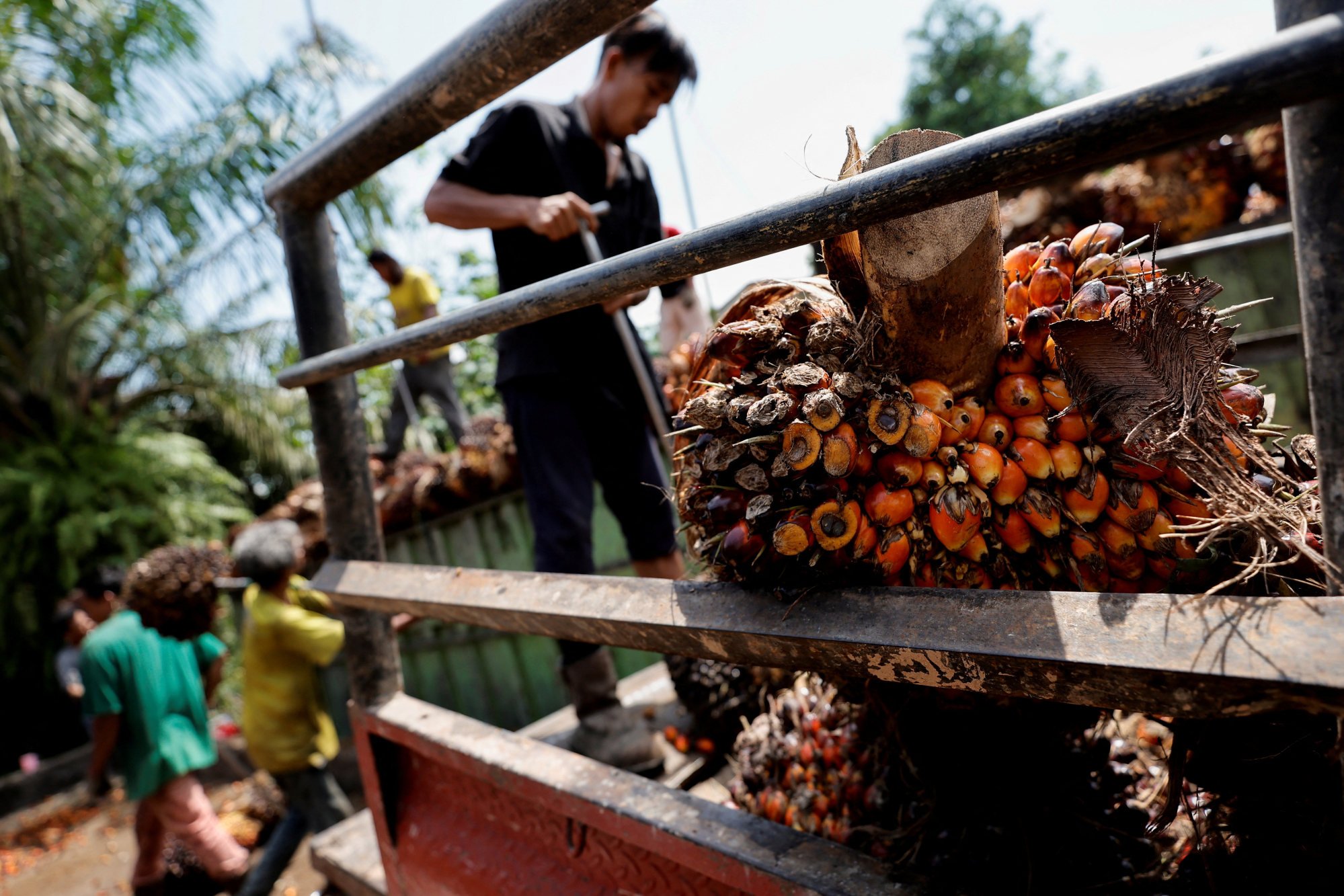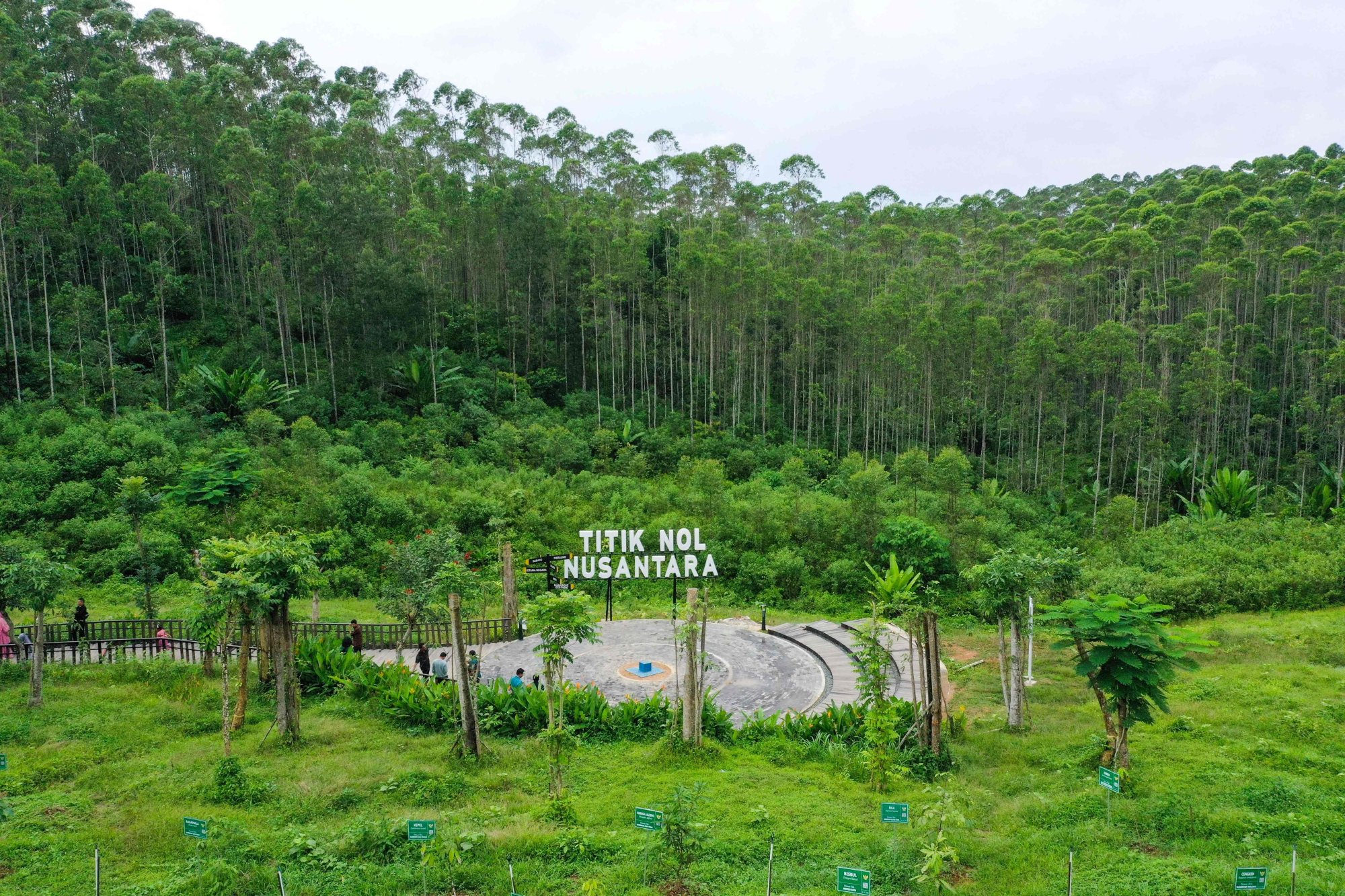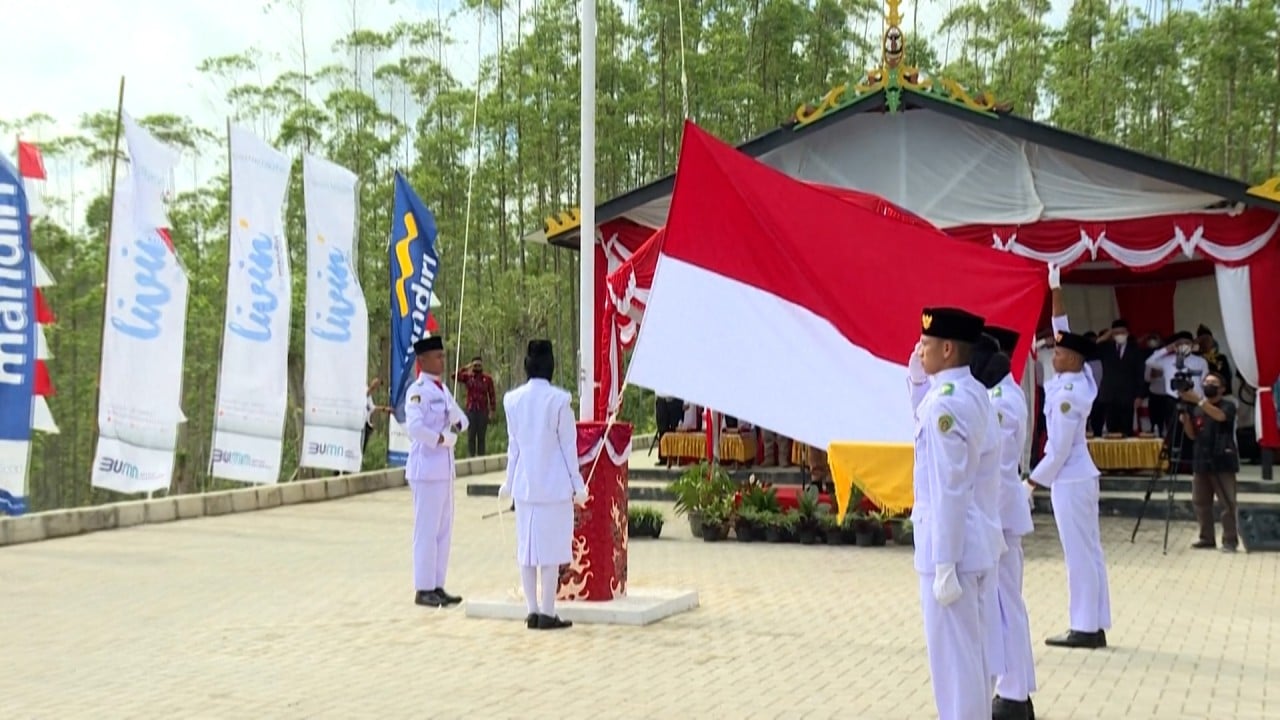
Malaysia to defend palm oil with Indonesia, will invest in Nusantara
- Widodo, Anwar to increase cooperation in palm oil market after EU plans to phase out imports of the commodity over deforestation fears
- Among other issues discussed, Malaysia will also look to boost investment in new Indonesian capital to benefit areas in Sabah and Sarawak
But the looming threat to the palm oil industry from its major EU market took prominence.

“We agreed to strengthen cooperation through the Council of Palm Oil Producing Countries (CPOPC) to increase the palm oil market and fight palm oil discrimination,” Widodo said on Monday, during a joint press conference at the presidential palace in Bogor, an hour’s drive from the capital Jakarta, as Anwar capped his two-day visit.
The EU last month said it planned to phase out the import of unsustainable palm oil-based fuels by 2030 due to its reputation as a driver of deforestation. Malaysia and Indonesia have filed complaints at the World Trade Organization, viewing the decision as motivated to aid European oil manufacturers.
In 2021, Indonesia produced 46 million tons of crude palm oil, making it the world’s largest palm-oil producer, with Malaysia behind with around 18 million tons. In the same year, the EU imported US$6.4 billion worth of palm oil products, mostly used for biofuels, three-quarters of it from the two Southeast Asian nations.
No coffee? EU agrees law preventing import of goods linked to deforestation
Explaining its stance, the European Commission in December said: “When the new rules enter into force, all relevant companies will have to conduct strict due diligence if they place on the EU market, or export from it: palm oil, cattle, soy, coffee, cocoa, timber and rubber as well as derived products.
“These commodities have been chosen on the basis of a thorough impact assessment identifying them as the main driver of deforestation due to agricultural expansion.”
But a study last year by supply chain mapping initiative Trase found deforestation caused by the expansion of palm oil plantations in Indonesia had fallen by 82 per cent to 45,285 hectares annually from 2018 to 2022, compared with the 2008-2012 period.
Researchers attributed this decline to companies adopting no-deforestation standards – a pivot backed by Indonesian farmers’ groups in their battle to secure higher prices from the conglomerates which dominate the sector.

Mansuetus Darto, secretary general of Indonesia’s palm oil farmers union, told This Week in Asia on Monday that Indonesia’s and Malaysia’s efforts to refute the EU’s position were “wrong”, instead describing it as an “opportunity (which) must be captured”.
“It provides a momentum for [the world to] access deforestation-free palm oil in the Indonesian market … and as it is also in line with the Paris Agreement, which Indonesia has agreed to be a part of,” he added.
“We are ready to help the Indonesian government and EU by providing a database of palm oil farmers that don’t do deforestation, as long as we are [guaranteed] a fairer price at the market and treated better by the existing palm oil companies,” he said.
New capital investment
It is customary for the first foreign visit of a new Malaysian prime minister to take place in neighbouring Indonesia, which counts Kuala Lumpur as its fifth-biggest export market and its largest destination for migrant workers.
In their press conference Anwar, who became his country’s 10th leader in November after decades as an opposition chief, said Indonesia had “a special place” in his heart as Southeast Asia’s largest economy “welcomed me as a true friend” at a time when his life was “tossed around in suffering”.
Widodo urged Kuala Lumpur to grant the development of community learning centres “to fulfil the educational rights of the children of Indonesian migrant workers”.

Other big-ticket announcements during Anwar’s visit included letters of intent from 11 Malaysian companies interested in the development of Indonesia’s new capital Nusantara, which will be located in Borneo, an island of which both nations share borders.
According to Anwar, Malaysia has economic interests in Indonesia’s US$34 billion new capital, as it will border Sabah and Sarawak.
“My colleagues in Sabah and Sarawak applaud this initiative. We [decided] that we would take a positive approach by looking for ways for growth in the new capital to benefit areas in Sabah and Sarawak,” Anwar said.
Widodo and Anwar also signed a number of agreements related to shipping, export-import financing, green energy, and development of the battery industry.


